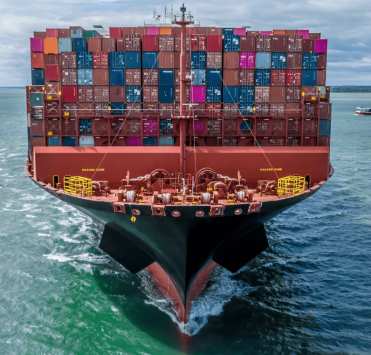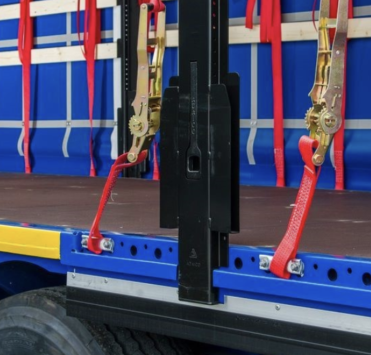10 Tips for Choosing a Reliable Logistics Operator

Organizing international cargo transportation from Ukraine is a complex process where every detail affects the timing, budget and safety of your cargo. Mistakes in choosing a logistics company can lead to delays, additional customs costs and reputational losses. In this article we will tell you about 10 key points that will help you to find a truly reliable partner in international logistics, so that your cargo delivery from Ukraine to any part of the world will go without problems and delays.
1. Determine the specifics of cargo and transportation directions
Before you start searching for a logistics operator, clearly define your own needs:
- The nature of the cargo: e.g. container transportation, perishable or dangerous goods, oversized cargo, etc.
- Main shipping destinations: Europe, Asia, USA, etc.
- Additional services required: temporary storage warehouse, marking, palletizing, insurance, repacking, customs clearance, etc.
This information will allow you to form a clear request to the potential company and immediately understand whether it has relevant experience in the countries you need.
2. research the reputation and feedback from customers
The Ukrainian market of logistics services is dynamically developing, so there is a lot to choose from. In order not to make a mistake:
- Study reviews and case studies on profile websites, forums and social networks.
- Check if the company has certificates (ISO, membership in professional associations such as the Association of International Forwarders of Ukraine).
- Pay attention to awards and participation in industry events (top ratings in logistics, awards for best service).
A reliable operator values its reputation, and you will surely find positive comments about it from customers who appreciate timely and high-quality delivery.
3. Ask about experience and competencies in international transportation
The company's experience in the international logistics market is an indicator of its reliability, but there are other important criteria:
- Specialization: ability to work with different types of cargo (pharmaceuticals, goods with special storage conditions, bulky equipment, dangerous goods).
- Knowledge of destination country requirements: current regulations, certificates of origin, sanitary and phytosanitary standards.
- In-depth expertise in export-import operations: understanding of cross-cultural sensitivities, language barriers, etc.
A competent operator knows how to properly process goods at the border and how to minimize risks for Ukrainian exporters and importers.
4. Assess the scale and partner network
To enter international markets, it is crucial for a Ukrainian logistics company to have a developed network:
- Branches or partners in major transportation hubs (ports, airports, land border crossings).
- Contracts with proven carriers (airlines, sea lines, road carriers).
- Ability to organize multimodal transportation (sea + rail + road, etc.).
Extensive partner network provides flexibility and speed of response, especially in case of unforeseen circumstances (changes in customs regulations, weather conditions, etc.).
5. Analyze cost and pricing transparency
Transparent pricing is the key to a long-term relationship. When getting acquainted with the commercial offer, scrutinize it carefully:
- What services are included in the tariff (fuel surcharges, customs clearance, insurance).
- Whether there are hidden charges (additional fees at specific ports or airports, storage fees).
- Whether there are discounts for regular shipments or large volumes.
Sometimes the lowest price means that a number of important services are missing, leading to additional costs and delays in the future.
6. Check compliance with international standards and environmental requirements
Modern business requirements go beyond classic quality and safety indicators. Many companies around the world are moving towards sustainable logistics focused on reducing their environmental impact. Note to self:
- Does the logistics operator have a green policy: route optimization, use of low-emission transport.
- Whether the norms of international environmental standards are observed.
- Whether green solutions are offered in packaging and warehousing (reusable containers, recycling, etc.).
Such measures not only reduce the carbon footprint, but also increase the confidence of European and global partners who are increasingly paying attention to environmental and social responsibility issues.
7. Clarify insurance terms
Insurance is an important element in international freight transportation. Ask in advance:
- Which insurers the company cooperates with.
- What exactly is covered by the policy (damage, theft, delay).
- What restrictions and tariffs apply to certain types of goods.
This is especially critical for expensive, fragile or perishable goods, where any accident can cause serious losses.
8. Explore customs services and support
For Ukrainian businesses in the international market, customs issues are particularly acute. A good operator offers:
- Professional assistance in preparing documentation (shipping documents, certificates of origin, phytosanitary documents).
- Qualified customs support: verification of UCT FEA codes, calculation of customs duties and taxes.
- Representation at customs and solution of disputable situations.
Competent customs support allows you to avoid delays, fines and unnecessary expenses.
9. Level of customer service
To assess the quality of service, pay attention to:
- Round-the-clock support and speed of responses to inquiries.
- Convenience of communication (by phone, messengers, e-mail).
- Format and frequency of reporting on cargo status.
A high level of logistics service is important if you regularly ship goods or work with large shipments. Any delay in communication can result in financial losses.
10. Flexibility and individual approach
One of the strengths of Ukrainian business is the ability to quickly adapt to changes. A good logistics operator should also:
- Offer alternative routes in case of border closures or transportation disruptions.
- Develop individual transportation schemes taking into account seasonality, port congestion, cargo specifics.
- Provide special conditions (cold chain for perishable products, special transportation for hazardous substances, etc.).
Such flexibility increases the chances of on-time delivery and reduces the risks associated with global changes in logistics chains.
Choosing a partner for international cargo transportation from Ukraine is a strategic decision. Take into account all the above factors: from reputation and competence to the level of customer service and transparency of tariffs. This will help you avoid risks, save time and money, and strengthen your business in foreign markets.
Save Pro Solutions is ready to become your reliable partner in international transportation and take on a full cycle of services:
- Development of an optimal route and selection of suitable transportation.
- Customs clearance and cargo insurance.
- Prompt door-to-door delivery within tight deadlines.
Contact us for a free consultation and cost estimate. We will help to ensure safe, timely and profitable delivery of your goods anywhere in the world!









